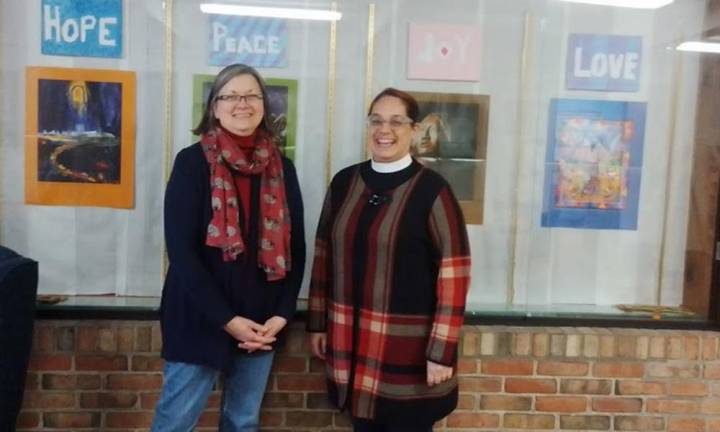
When Reverend Kristina Reyes, of Shepherd of the Hills Lutheran Church, penned a press release repudiating anti-Semitism and pledging to stand with the local Jewish community, she was echoing a declaration written about twenty-six years ago by the Evangelical Lutheran Church in America.
“We recognize in anti-Semitism a contradiction and an affront to the Gospel, a violation of our hope and calling,” the 1994 declaration reads.
“It’s a tender point for us,” said Reyes, who submitted the January 3rd press release following the most recent violent act of anti-Semitism in Monsey, NY. Reyes reached out to fellow Sparta church leaders, offering each the opportunity to sign onto her letter. In the end, seven reverends signed, including Reyes herself.
Reverend Doug Thuen of the Sparta Evangelical Free Church, who had not initially responded in time to be included on the original letter, also offered his support.
“I wholeheartedly agree with the document and condemn all violent acts of hatred regardless of one’s faith, religious convictions, or ethnicity,” Thuen wrote. “I am extremely grateful for the clergy in our community taking this stand.”
Reyes said that publicly speaking out is only the first step toward “showing up” for the Jewish community. The press release, she said, “is not the ending; it’s just the beginning.”
“This will require more of us than repeated statements,” The Reverend Elizabeth A. Eaton, Presiding Bishop of the ELCA, wrote in a December 30 letter addressing anti-Semitism. “It will require building bridges of inter-religious understanding in our communities. It will require reaching out to our Jewish neighbors to offer our care, support, love, and protection.”
Rabbi Mendel Dubov at Chabad of Sussex County expressed his gratitude for the support from Sparta clergy. “Our Jewish community deeply appreciates the solidarity and unity expressed in this statement and in the many calls we have received throughout this time,” he said.
Shepherd of the Hills Lutheran Church and Chabad of Sussex County currently share little more than a parking lot, but Reyes says she hopes they’ll share more than that in the future — an interfaith youth group may be one option to help strengthen ties.
“[Rabbi Dubov] is not alone,” said Reyes. “This was a way to tell the world that he is not alone.”
Dubov emphasized a need for education to address growing intolerance. “For all those that ask me, I believe the call of the hour now is education: to actively and constantly imbue our youth and those who look up to us with the God-given values that make strongly good and moral people,” he wrote.
“Parents and all those directly involved with education must know their responsibility. We cannot afford the alternative.”